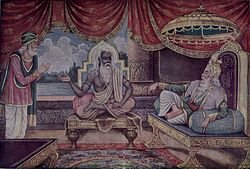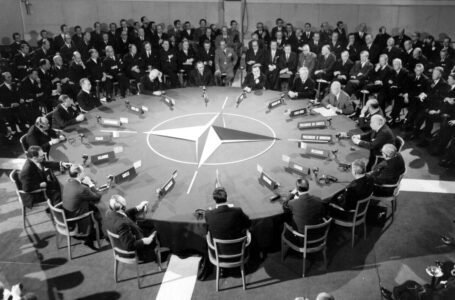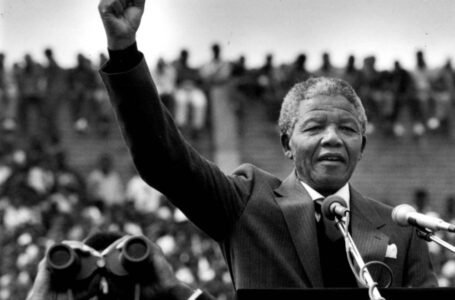Nyaya Philosophy: How Deep Thinking and Realism Thrived in Ancient India

Nyaya, a system developed to facilitate reasoning among the six systems of the Indian philosophy finds a place of pride in the Indian history. Also known as the ‘school of reasoning’, it deals primarily with the principles of logic, epistemology and realism which eventually formed the essential foundations of systematic investigation and controversy in Indian philosophical thought. Developed to assist in the activity of searching for the absolute truth and learning the world, Nyaya teachings have been successful in enhancing the field of knowledge, perception and ontology.

Nyaya should be considered a guide on how to acquire valid knowledge instead of merely a set of ideas, and it is such ideas that remain relevant now. From ancient times to the present, and from one continent to the other, Nyaya’s regard for reasoned discourse has not gone out of fashion.
The Origins of Nyaya: the Historical Timeline of Its Evolution from Sage Gautama to the Nyaya Sutras
Most scholars believe that it is Sage Gautama or ‘Akshapada’ who established the Nyaya order of Thinking around 200 BC. It was this Gautama who authored the Nyaya Sutras a syllabus that has remained indispensable to the Nyaya philosophy. The Sutras were presented as a logical system which was both diverse and complex offering a method of establishing truth by providing arguments and reasoning.

Gautama’s work was not just theoretical; it was meant to guide the pursuit of correct knowledge in everyday life. The Sutras delve into various topics, from perception to inference, providing a structure for evaluating information and making sound judgments.
Nyaya’s influence is far-reaching, particularly in its interaction with the Vaisheshika school of thought, which deals with metaphysical questions, such as the nature of reality and substances. While Nyaya focuses on logic and epistemology (the study of knowledge), Vaisheshika focuses on categorising the world’s fundamental elements. Together, the two systems form a unified approach to understanding both the physical and the metaphysical world, a framework often referred to as Nyaya-Vaisheshika.

The Three Modes Of Nyaya Are: The Nature Of Valid Knowledge
In the following details Nyaya is about the methods and the process of valid knowledge. And into four, as the classical text mentions, flirt together in the following manners.
- Perception (pratyaksa) – is the widest in terms of revealing such knowledge which resides in human rooted firmly in him without any other intermediary as oral account had to be. Direct experience through the senses, which dpanning knowledge base this is understood as the basic knowledge and experience or the most elementary type of crictal thinker experiencing or commehis core.
- Inference (anumana) – interpretated in context of the Nyaya, more or less means A knowledge that is gained or obtained through reasoning by the use of ideas that have been observed /known. Such inferences are of three types: Purvat returns from knowledge of the basics to the general, Sheshva which attributes part to the general whole. The third simply means Lars College of Africa. From where less commonly extended imagination is used.

Migfor translation of nouns the structural shifts not only happened the third sense of the word. Using what is generally accepted in any other context including educational. An understanding that surely leads them somewhere where, in this case relating the known object to the new atmosphere which can guide.
- Testimony (shabda) knowledge is a bit though reasoning has produced evidence words of authority or someone whois an expert in such areas, perfectly integrates with excerpts that are fairly true to traditional Nyaya very practical application directly related to faith or religion or certain major world religions.
For example, if we see dark clouds in the sky (perception), we might infer that it will rain soon (inference). Similarly, if someone tells us it rained last night (testimony), we accept their statement based on their reliability.

Nyaya’s realism: A world other than the perceptorial one
The metaphysical perspective of Nyaya is however quite different in that it does not only base itself on idealistic philosophies but as well believes in realism where objects exist even if not all are perceivable. This stands in contrast to more idealistic philosophies that may argue that the reality is dependently shaped by the mind. Nyaya, however, asserts that even when one cannot perceive objects and events, they exist in splendid isolation, in self-contained intervention.
This realist stance is tied closely to Nyaya’s view towards causality. The school asserts that causes are important and every event has to have a cause for it to be comprehended in the true sense of the word. For example, if one observes the movement of a tree, one will be able to conclude that the wind acted upon it and this is why it had moved. As the idea went, there are thoughts that do allow such deductions as these making it much more precise and comprehensive in understanding the natural world.
Furthermore, Nyaya’s realism does not stop to the material and corporeal world. It also goes beyond and includes metaphysical entities such as the soul or Atman which is considered to be real and separate and does not perish with the death of the body. The essence of the existence and the very essence of Atma is quite a significant portion of Nyaya’s inquiries in a broader context of philosophy dealing with life and Moksha.

The Nature of the Soul and Liberation
Nyaya links its investigation of the body with the contention of its liberation. In Nyaya religion, the spirit is separate from the body and the mind, and it has no end. The spirit’s ignorance of its real self or Avidya holds it in bondage to the wheel of birth, life death and rebirth ‘Samsara’. The moksha wherein the Atman gains the real wisdom of its essence and completes to bondage is also known.
Nyaya claims that the correct application of the four Pramanas is required in order to obtain true knowledge. The moment the AAtman reaches that stage, it becomes liberated from pain and all the confines of the material sphere. Twin objectives of liberation: complete freedom and ultimate bliss make it an ideal shared by many Indian philosophical traditions, even if the yaya route to Moksha is rather different as it is based on logic.

Dispute and Dialectics: Nyaya Jankrishna Bhara’s Intellectual Heritage
Another one of Nyaya’s merits in Indian philosophy is the creation of a systematic framework which goes by the word Nyaya Shastra and was aimed at negative and positive dialectics. Nyaya philosophers saw debate as not only a verbal competition, but a means for truth discovery. The Nyaya Sutras followed strict stipulations on argumentation and hence debate ethics and logic.
This method of debate is grounded in the concept of Tarka, or reasoning, which involves examining propositions through a process of elimination and verification. Tarka is a form of critical reasoning used to test the validity of an argument or statement. Nyaya philosophers believe that through debate, flawed arguments can be exposed, and truth can be brought to light.
Nyaya’s contribution to debate had practical applications in ancient India, particularly in law courts and religious discussions. The emphasis on logical consistency and the ethical conduct of debate made Nyaya a central framework for resolving disputes. The skills developed through Nyaya’s system of logic were highly valued by scholars, lawyers, and statesmen alike.

Nyaya and Vaisheshika: A Philosophical Partnership
Although Nyaya and Vaisheshika began as separate schools of thought, their philosophies often overlap, particularly in their commitment to realism. Vaisheshika, founded by Sage Kanada, is primarily concerned with metaphysics, categorising the physical world into substances such as earth, water, air, and fire. Nyaya, on the other hand, provides the logical tools to understand these categories and their interactions.
One of the most notable intersections between Nyaya and Vaisheshika is their shared belief in atomism. According to this view, the world is composed of indivisible atoms that combine to form all matter. Both schools use this concept to explain the material world, though Nyaya focuses more on the logical implications, while Vaisheshika examines the physical properties of these atoms.
The partnership between Nyaya and Vaisheshika forms a comprehensive philosophical system, where metaphysics and logic work hand in hand to explain the nature of reality. Together, they offer a dual approach to understanding both the physical and metaphysical aspects of existence.

Modern Relevance of Nyaya Philosophy
Nyaya’s emphasis on logic, reasoning, and debate continues to be relevant today, particularly in fields like law, science, and philosophy. Its structured approach to argumentation has parallels in modern legal reasoning and scientific inquiry, where evidence-based conclusions are valued over assumptions.
In contemporary discourse, Nyaya’s insistence on valid knowledge through reliable sources resonates with today’s focus on critical thinking and evidence-based reasoning. The methodical approach to analysing information, using the four Pramanas, aligns with modern problem-solving techniques in various disciplines, from academia to the workplace.
The world of artificial intelligence, for instance, employs similar methods of logic and reasoning in developing algorithms that mimic human thought processes. While these systems are based on binary logic, the principles of Nyaya, with its emphasis on inference and deduction, are foundational to how we process and evaluate data in the modern world.

Conclusion
Nyaya’s contributions to Indian philosophy, particularly its focus on epistemology, logic, and realism, have had a profound and lasting impact. Its insistence on reason, debate, and the pursuit of truth set the stage for intellectual traditions not only in India but across the globe.
At a time when critical thinking and logical reasoning are more crucial than ever, the insights of Nyaya continue to offer valuable lessons. Whether one is delving into ancient philosophical debates or engaging in modern discussions, Nyaya’s philosophy reminds us that the search for truth and knowledge is a timeless endeavor.


